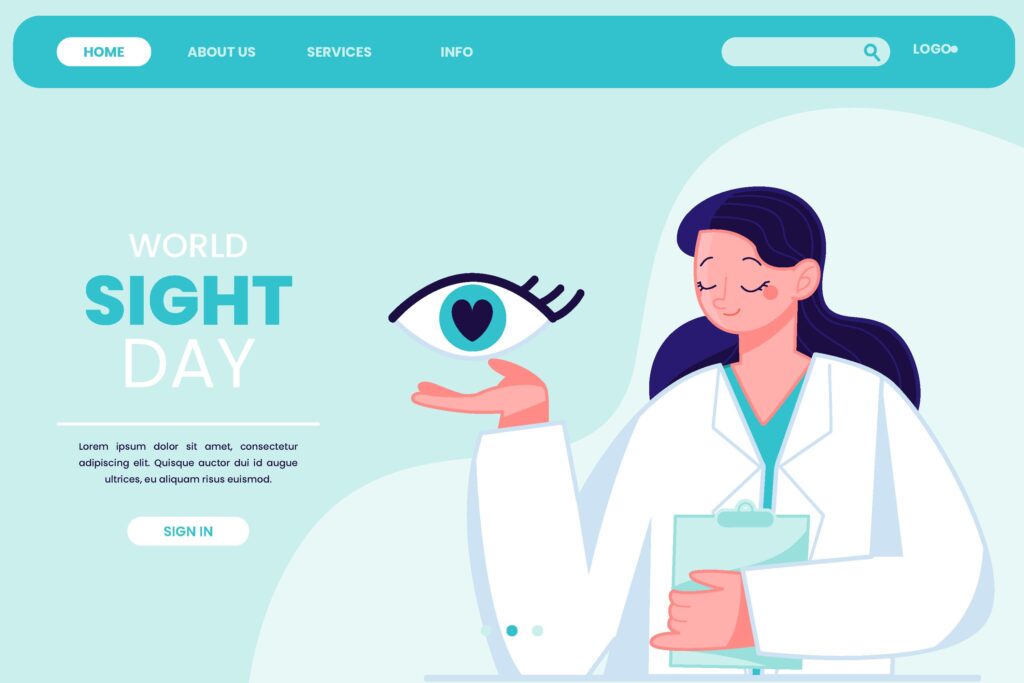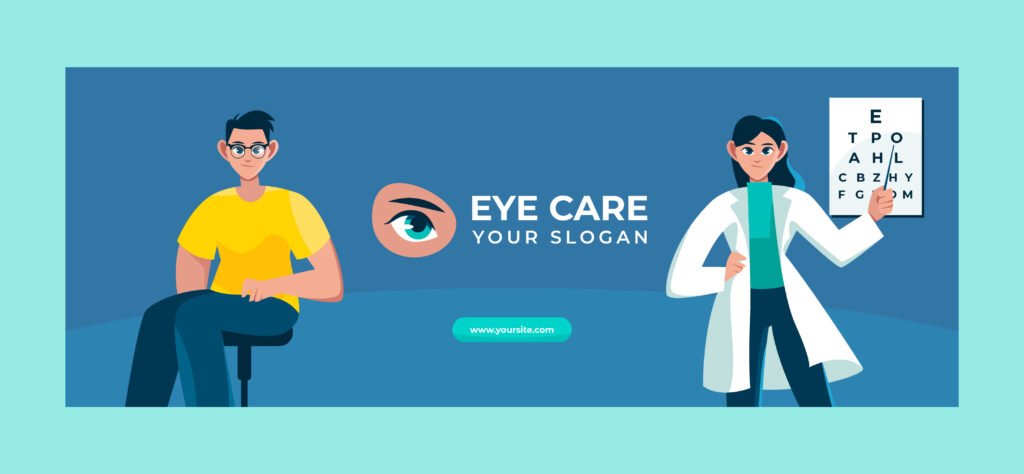Guide to Eye Care

Keep Your Vision Bright and Healthy
In today’s world, our eyes are working overtime—staring at screens, battling bright sunlight, or adjusting to dim lights. They’re our windows to everything beautiful, from a friend’s smile to a stunning sunset, yet we often don’t think about eye care until something goes wrong. Healthy eyes do more than help you see clearly; they’re tied to your overall wellness, helping prevent headaches and even catching early signs of serious conditions like diabetes or high blood pressure. The good news? With a few simple habits, a smart diet, and regular check-ups, you can keep your eyes in top shape. This guide breaks down everything you need to know about eye care, whether you’re a screen-addicted professional, an outdoor enthusiast, or just someone who wants to see the world clearly for years to come.
Why Your Eyes Deserve More Attention
Your eyes are incredible, but they’re also delicate. Things like too much screen time, UV rays, or simply getting older can take a toll. Ignoring eye health can lead to big problems like cataracts, glaucoma, or macular degeneration—some of the top causes of blindness. Plus, vision issues don’t just affect your eyes; they can mess with your mood, making you feel frustrated or even isolated if you’re struggling to see. Regular care can catch problems early, saving your sight and boosting your quality of life.
Eye exams are like health detectives. They don’t just check your vision—they can spot signs of bigger issues, like changes in your retina that might point to high cholesterol or blood pressure problems. Taking care of your eyes is like taking care of your whole body, and it’s never too early to start. The risk of eye diseases climbs after 40, but building good habits now sets you up for clear vision later.
Daily Habits to Keep Your Eyes Happy
Great eye care starts with small, everyday steps. First, protect your eyes from the sun. Grab sunglasses that block 100% of UVA and UVB rays, even on cloudy days—they’re your shield against damage that can speed up cataracts or macular degeneration. If you spend hours on a computer or phone, try the 20-20-20 rule: every 20 minutes, look at something 20 feet away for 20 seconds. It’s a simple trick to ease eye strain and prevent that tired, gritty feeling.
Cleanliness counts too. Always wash your hands before touching your eyes or handling contact lenses to avoid infections like pink eye. If you wear contacts, stick to the cleaning routine and never sleep in them unless your doctor says it’s okay. Makeup lovers, swap out mascara and eyeliner every three months to avoid bacteria buildup, and always take it off before bed.
Staying hydrated is a game-changer. Drinking water keeps your eyes from getting dry, especially in air-conditioned rooms or chilly weather. If your eyes feel scratchy, artificial tears can help, but check with a pro first. You can also try quick eye exercises—like blinking fast or gently rolling your eyes—to keep muscles strong and improve focus. Stick with these habits, and you’ll cut down on everyday irritations.
Eating for Better Eye Health
What’s on your plate can make or break your eye health. Foods packed with nutrients are like fuel for your vision. Leafy greens like spinach and kale are loaded with lutein and zeaxanthin, which act like natural sunglasses, protecting your eyes from harmful light and lowering the risk of macular degeneration. Fish like salmon or plant-based options like flaxseeds bring omega-3s, which help with inflammation and can ease dry eyes.
Don’t skip the vitamins. Vitamin A in carrots or sweet potatoes keeps your cornea healthy and helps you see in low light. Vitamin C from oranges, strawberries, or bell peppers strengthens blood vessels in your eyes, while vitamin E in almonds or sunflower seeds fights damage from free radicals. Zinc, found in foods like beef, beans, or oysters, helps your retina stay healthy and supports the pigment that protects your eyes.
Cut back on sugary snacks and processed junk—they can raise your risk of diabetes, which can harm your eyes with conditions like retinopathy. Instead, fill your plate with colorful foods like berries or peppers for maximum benefits. If you’re worried you’re not getting enough nutrients, talk to an eye doctor about supplements, but whole foods are usually the best way to go.
Avoiding Common Eye Troubles
Staying proactive can help you sidestep many eye problems. Dry eyes, often from staring at screens too long or certain medications, can be eased with a humidifier or by taking regular breaks. Got itchy, watery eyes from allergies? Rinse them with saline and ask your doctor about antihistamine drops.
More serious issues, like glaucoma, sneak up without symptoms, so regular eye exams to check pressure are a must. Cataracts, which cloud your vision as you age, can be slowed by wearing sunglasses and kicking smoking to the curb. Macular degeneration, which blurs your central vision, is less likely if you eat plenty of antioxidant-rich foods.
If you’re on screens all day, blue light filters on your glasses or devices can cut down on strain. Playing sports? Wear protective goggles to avoid injuries. Watch for warning signs like blurry vision, floaters, or light halos—these could mean something serious like a retinal issue, so see a doctor ASAP. Keeping your blood sugar and blood pressure in check also helps protect your eyes.
Why You Need Regular Eye Check-Ups
Your daily efforts are awesome, but nothing beats a professional eye exam. Aim for a comprehensive check every one to two years, or more often if you have risks like diabetes or a family history of eye issues. These exams let doctors peek at your retina and optic nerve, catching problems before they get worse.
If you wear glasses or contacts, keep your prescription up to date to avoid headaches or strain. Thinking about LASIK? Talk it over with your doctor to weigh the benefits and risks. For kids, start eye checks around age three—vision problems can make school harder. Pregnant women, watch for changes tied to gestational diabetes. And if you’re over 65, yearly exams help manage age-related changes like presbyopia.
Eye Care for Every Stage of Life
Eye care changes as you grow. Babies and toddlers need checks to catch issues like lazy eye early. Kids spending more time on screens can benefit from outdoor time to slow nearsightedness. Teens staying up late should prioritize sleep to avoid eye strain. Adults with desk jobs might need better desk setups to prevent computer vision syndrome.
For women hitting menopause, hormonal shifts can dry out eyes, so talk to a doctor about solutions. Older adults should watch their step to avoid falls that could hurt their eyes. And no matter your age, quitting smoking is huge—it doubles your risk of serious eye diseases.
Wrap-Up: Love Your Eyes Every Day
Taking care of your eyes is a lifelong journey that pays off with clear, comfortable vision. With simple daily habits, a nutrient-packed diet, smart prevention, and regular check-ups, you can keep your eyes shining bright. Start now—pop on those sunglasses, snack on some kale, and book that eye exam. Your vision is worth it, and these tips make it easy to stay on track.
If you notice sudden vision changes, don’t wait—see a doctor right away. Here’s to seeing the world clearly and loving every moment of it!
